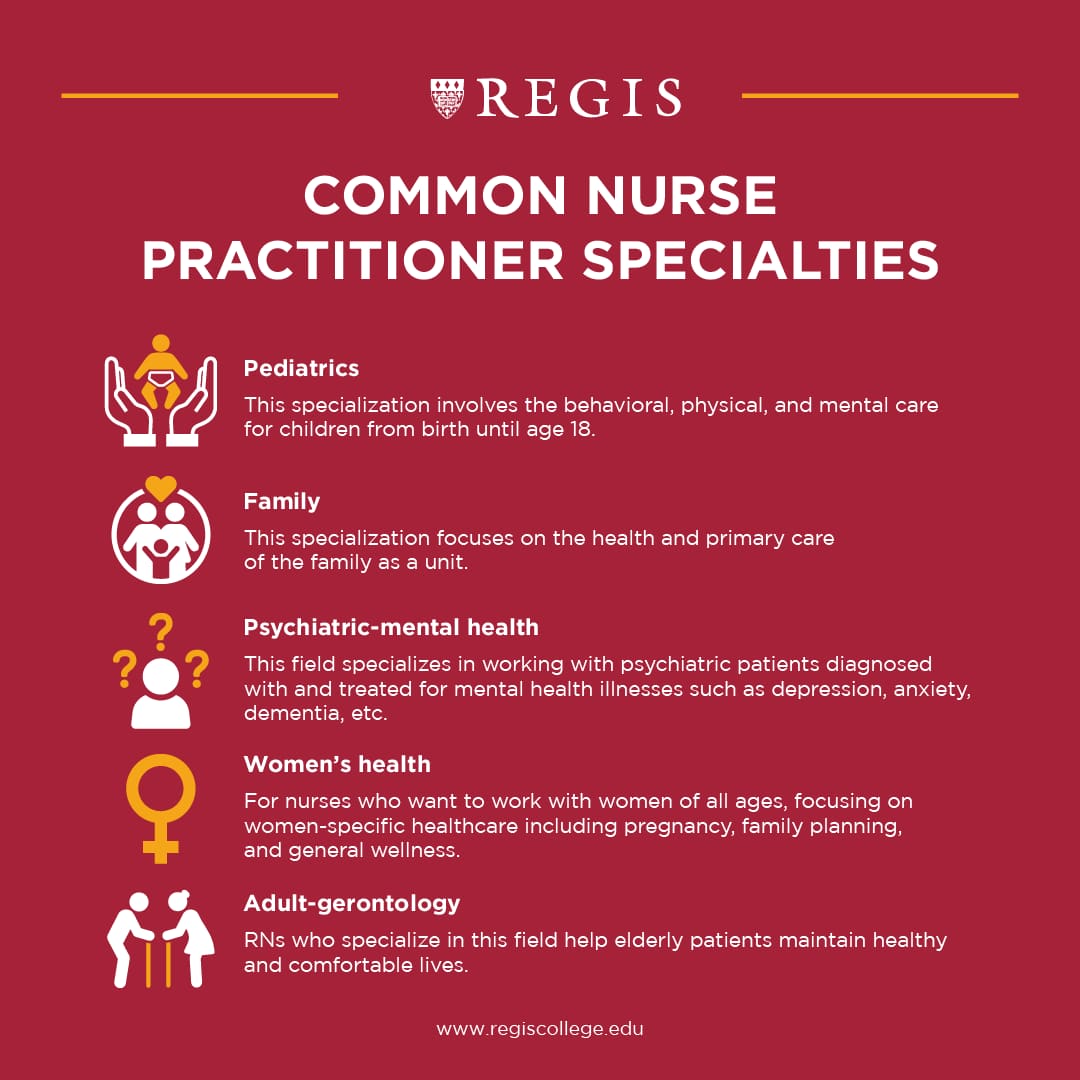Nurse practitioners (NPs) are at the forefront of modern healthcare, bridging the gap between patient needs and accessible, high-quality care. As a result, they play a critical role in patients’ lives and their health outcomes.
With their ability to deliver both primary and specialized services, NPs are vital in addressing healthcare shortages by providing both primary and urgent care services, as well as specialty care. Their scope of practice, which can include diagnosing, treating, and managing patients independently in many states, empowers them to serve as trusted healthcare providers who make a lasting impact on individuals and their families.
Key Takeaways
- Nurse practitioners (NPs) can diagnose illnesses, manage treatments, and prescribe medications, often without physician oversight depending on the state they work in.
- Nurse practitioners enjoy high demand, competitive salaries, and job stability, making it a rewarding and future-proof career path in healthcare.
- Becoming a nurse practitioner typically requires six to eight years of education, including earning a bachelor’s degree (BSN), becoming a licensed RN, and completing a graduate-level degree (MSN or DNP).
- Becoming an NP that specializes in a specific field opens doors to diverse opportunities in pediatrics, psychiatric-mental health, family practice, and women’s health.
Is Becoming an NP Worth It?
One of the many benefits of becoming a nurse practitioner is the increasing demand. According to the U.S. Bureau of Labor Statistics, the demand for nurse practitioners is projected to grow 45 percent by 2031, making it one of the fastest growing occupations in the country.
In addition to the demand, you might also ask yourself: What do nurse practitioners do? Though day-to-day responsibilities of NPs can vary significantly depending on where they work (both geographically and specific facility), nurse practitioners are able to provide excellent care to patients and are known as an integral part of the nursing team.
In exchange for their work, NPs enjoy relatively high salaries, competitive benefits, job stability, and a rewarding, impactful career.
So now you might be wondering how to become a nurse practitioner.
And whether you’re new to the healthcare industry, or you are already a registered nurse looking to take the next step in your career, here are the steps to becoming a nurse practitioner.
Steps to Becoming a Nurse Practitioner
1. Become a Registered Nurse.
There is a certain level of education that is required to become a nurse practitioner, which is why the first step is to become a registered nurse. This step isn’t optional.
“To be a nurse practitioner, you first have to be a [registered] nurse and then you take those nursing skills and you advance them,” explains Carol Martin, assistant dean of the NP program at Regis College.
To become a registered nurse, the first step is completing an accredited nursing program. While it is possible in some states to become an RN with as little as an associate’s degree in nursing, in more and more states, additional educational requirements might include a bachelor’s degree in nursing. It is also possible that an employer might only accept applicants who have earned at least their BSN, even if an associate's degree is accepted at the state level.
Additionally, if you know that you would like to become a nurse practitioner, then a bachelor’s degree is required. This is due to the fact that becoming a NP requires graduate-level education.
If you’ve already earned your associate’s degree, there are many programs designed to help you bridge the gap and complete your BSN. Additionally, other accelerated nursing programs exist which are designed to help you earn your BSN and MSN as quickly as possible.
After completing your undergraduate education, you’ll need to pass the National Council Licensure Examination (NCLEX-RN) and complete licensing in the state in which you wish to practice.
2. Gain experience and explore specialties.
While it is possible to go directly from a BSN program to a graduate program, many nurses choose to work in the field before going back to school. Doing so is a great opportunity to develop your skills and knowledge, as well as explore possible future career opportunities, different nursing professions, various healthcare settings, patient populations, and specialties.
Common Nurse Practitioner Specialties
- Pediatrics: This specialization involves the behavioral, physical, and mental care for children from birth until age 18.
- Family: This specialization focuses on the health and primary care of the family as a unit.
- Psychiatric-mental health: This field specializes in working with psychiatric patients diagnosed with and treated for mental health illnesses such as depression, anxiety, dementia, etc.
- Women’s health: For nurses who want to work with women of all ages, focusing on women-specific healthcare including pregnancy, family planning, and general wellness.
- Adult-gerontology: RNs who specialize in this field help elderly patients maintain healthy and comfortable lives.

As a registered nurse, it is possible to earn a number of different certifications in various specialties. These certifications indicate your experience to prospective employers. More importantly, however, they allow you to experience working with different populations and challenges. This can help you understand whether or not you would like to specialize in a given field as a nurse practitioner, which may impact the field of study you choose.
3. Complete your graduate education.
In order to become a nurse practitioner, you will need to complete an accredited, graduate-level nursing degree. The two options you can choose from include your Master of Science in Nursing (MSN) or Doctor of Nursing Practice (DNP).
Which degree is right for you will depend on a number of factors, including where you wish to work and the role you want to play.
In some states, it is possible to work as a nurse practitioner after earning your MSN. Increasingly, however, states are requiring NPs earn their DNP in order to practice.
In general, earning an MSN prepares students for direct clinical practice and patient care. A DNP, on the other hand, will often focus on research, education, and healthcare policy in addition to clinical practice. For this reason, even if you can become an NP in your state with just earning an MSN, if your end goal is to take on a position of leadership then earning a DNP may be the better option for you.
How Long Does it Take to Become a Nurse Practitioner?
If you’re considering becoming an NP, you likely want to know how long it will take. On average, the journey to becoming an NP takes six to eight years, though it can vary depending on your educational background and whether you choose to gain work experience between degrees.
Accelerated programs, such as those offered at Regis, can reduce this timeline, allowing students to earn a BSN and MSN in just three years. While the timeline depends on your choices, the path to becoming an NP leads to a highly rewarding career with advanced responsibilities, competitive salaries, and the opportunity to make a meaningful impact in healthcare.
Getting Started as a Nurse Practitioner
Being a nurse practitioner can be an incredibly rewarding career. While getting there will take work in the form of completing both an undergraduate and graduate level degree, enrolling in the right program will empower you to succeed.
When evaluating programs, there are a few considerations you should keep in mind. For example, who will actually be teaching you? Enrolling in a program that is taught by those actively practicing in the nursing field ensures you are receiving the most up-to-date information. Additionally, do you know that you would like to specialize in a given field of practice? Many MSN and DNP programs offer specialized tracks.
Knowing this information before you decide to enroll in a program will help you ensure you are making the absolute best choice for your career.




